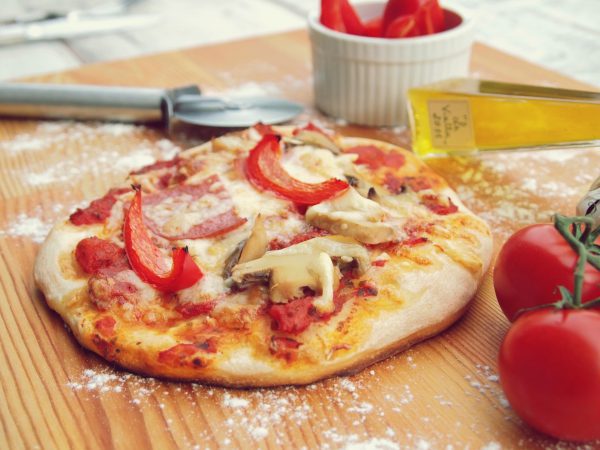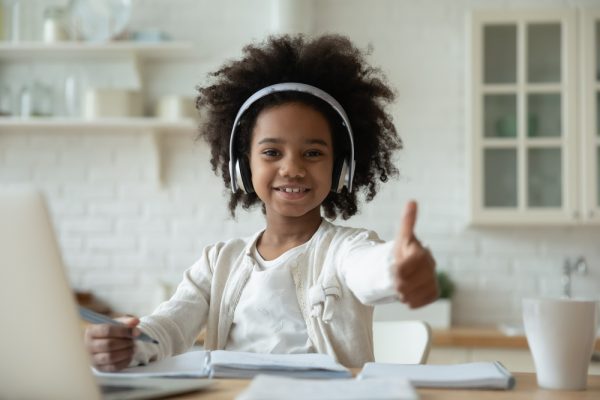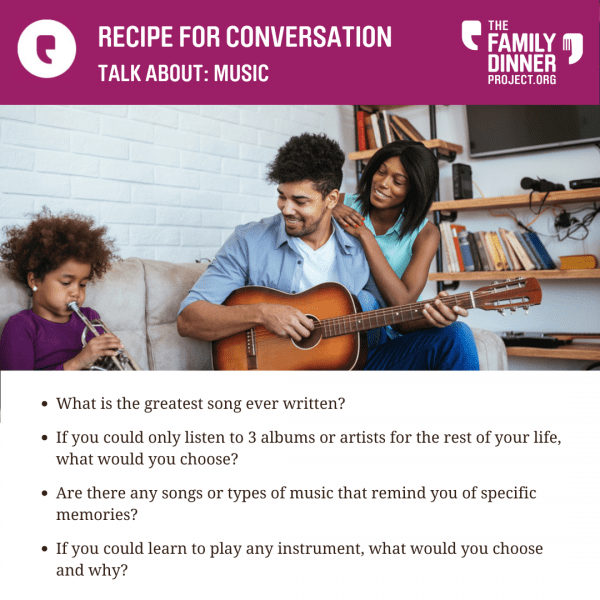Newsletter: March 2023
Boost Mental Health with Music at Meals

Dinner at our house almost always comes with a playlist. Every evening, as we’re setting the table and putting the finishing touches on the food, I hear my husband start the music in the dining room – and the selections often say something about what’s happening in the household or family dynamics that night.
If the playlist belongs to one of our sons, it might mean that child had a hard day at school and needs a little extra attention. If it’s my husband’s beloved 80’s playlist, he’s judged the family vibe to be fun and high-energy that evening. When the Indigo Girls start playing, it’s a subtle signal that he’s particularly thinking of me at the moment. And depending on the artist, various classic rock albums might mean everyone’s feeling a bit reflective about loved ones we’ve lost.
The dinner music has always been tied to the mental and emotional well-being of my family, and as it turns out, research shows that we may be onto something. Dr. Eugene Beresin, Executive Director of the MGH Clay Center for Healthy Young Minds, recently published a new book on the power of music for human connection, wellbeing, and mental health. Dr. Beresin says:
“Generally listening to music has been an effective means for mood regulation, expression of feelings and emotions…Music creates a sense of social belonging when watching music videos with friends or sharing playlists. This is true for adolescents who simply listen alone or watch music videos or share playlists with friends. When listening, even when alone, the brain knows it came from a human agent, and hence is experienced as a social phenomenon. When listening to music, you are never alone.”
Dr. Beresin’s observations cover all aspects of interacting with music, including playing instruments, singing, creating playlists, and listening. He also looks at all ages and finds benefits across the lifespan, from coordinating communications between mothers and their infants to improving mood and mental health indicators in older adults with stroke or dementia. The key takeaway is that music – performing it, participating with others, and simply listening and sharing the experience – offers great social and emotional benefits, and is good for our mental health. Here are some ideas to incorporate the power of music into your family dinner routine:
- Make playlists. It may sound overly simplistic, but Dr. Beresin found that for teens especially, creating and sharing playlists can be an important form of self-expression. Letting kids have a say in what the family listens to, and showing an interest in their musical choices (no criticism, hard as that may be sometimes!), can help foster their development. It may also help break down some of the difficult communication barriers parents often feel during the tween and teen years! Musical preferences are also a window into a teen’s inner life.
- Play singing and rhythm games. Not everyone will play an instrument, but everyone can benefit from making music in some way. Games like Different Drummers and Name that Tune are fun, easy to play, and can help kids develop basic musical skills – and they can make a nice break from asking “How was your day?”
- Try trivia. Look up some music trivia online and have fun quizzing each other at dinner. You can also incorporate musical brain-teasers with the Song Game, or by changing Story by Sentence into Song Lyrics by Sentence (going around the table, each person sings one line of a well-known song).
- Don’t forget to dance. If you crank up the tunes while you’re cooking or cleaning up together, you can sing and dance along to make the task more fun. Try turning dessert into a dance party by making ice cream or whipped cream with a shaker, or allow dance breaks during the meal – wiggly kids might especially love a five minute game of Freeze Dance!
No matter how you choose to enjoy it, music can be a powerful addition to your family mealtimes. Give it a try and see how much fun dinner music can be!
Food

Nothing says “kitchen dance party” quite like homemade pizza!
Fun

For a calming way to bring music to the table, try this great transition activity that’s perfect for settling into mealtimes.
Conversation
Get everyone talking with these music-themed conversation starters!

Recent Newsletters
- Warming Up Winter - January 2026
- Home, and Homemade, for the Holidays - December 2025
- Thanksgiving Traditions, Old and New - November 2025
- Food as Comfort and Care - October 2025
- The State of Family Dinner - September 2025
- Back to School Dinner Success - August 2025
- What’s Your Meal Planning Personality? - July 2025
- A New Guide to Gathering - June 2025
- Celebrating 15 Years of The Family Dinner Project - May 2025
- New Research: Family Dinners Boost Happiness - April 2025
- Just the Two of Us - March 2025
- Ways to Build Community Through Dinner - February 2025
